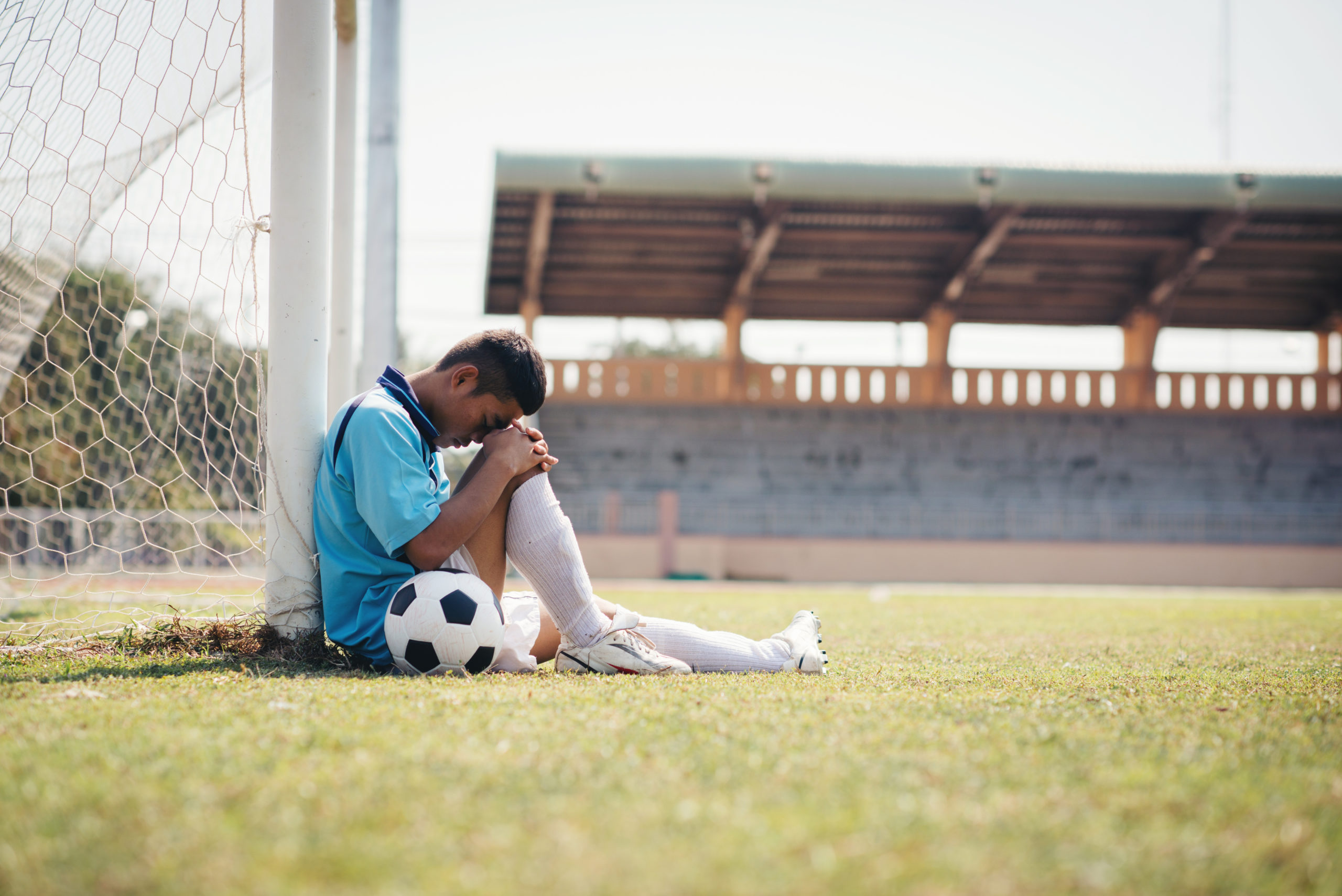by Diane Masiello, Ph.D.
The competition at try-outs was fierce, and your child didn’t make the team. Chances are they feel awful, and so do you. However, remember that children, like adults, aren’t always going to succeed at everything they try—and that’s a good thing. Indeed, some level of failure is necessary to create resilience or the ability to overcome obstacles. So you’re facing an incredibly disappointed child and dealing with your own emotions as well. What can you do? Experts give five basic recommendations:
- Don’t minimize or dismiss your child’s feelings or your own. It’s natural to feel bad when something doesn’t go as planned. Allow yourself and your child to feel that sadness, frustration or anger for a little while. Go together for a walk, a run, a bike ride or a swim to work off the energy that comes with frustration. She may not want to talk about it right away, but when she does, don’t belittle her loss by saying, “it’s not so bad.” Certainly, don’t criticize or put down the team or the coach; your child may want to try out for the team again sometime, and she needs to maintain a good attitude. When your child is ready to talk, acknowledge that it feels awful to fall short of a goal and tell stories about when you or other family members also experienced disappointments. Discuss how you or those family members overcame that failure, moved on from it or learned from it. Come up with a few examples, so your child will see more than one way to deal with adverse outcomes.
- Turn that frown upside down. While it’s essential to give children time to feel their sadness and disappointment, don’t let your child dwell in it. Turn his attention to ways he can move forward. Would he like to take lessons or extra training? Would he like to work out with a coach or a parent to help him get faster or develop stronger muscles? Would he like to try out for another team, a different sport or a different activity? Turning your child’s thoughts to how he can overcome this adversity is the main component of developing the life-long resilience that will allow him to get up again after a fall.
- Look to those who have come before. Find some biographies of successful athletes who initially failed but then came back stronger than ever, especially athletes who struggled when they were young. It’s easy to find a plethora of children’s books about sports stars who overcame adversity. Read a few together—maybe five or ten—and discuss the different ways those athletes beat their obstacles. Some may have taken a break. Some may have gotten right back in the thick of things. Others might have chosen a different sport. You should help your child see, in those examples, the path that best fits her.
- Take stock of strengths and weaknesses. Everyone has naturally good things and things they need to work on. While this conversation should not happen right after the initial disappointment, eventually, your child should learn to evaluate the things he is naturally good at and the things at which he needs to work harder than others. The quote, “Hard work beats talent when talent doesn’t work hard,” is best applied here. Your child doesn’t have to be naturally gifted to do well in something—he needs to give it his all. At the same time, no one can give their all to everything, and some things just aren’t going to be worth the time it takes for your child to succeed at them. For instance, if your child tends to stare off into space and daydream, perhaps he’d be better at an individual sport like running or swimming than a team sport where he might miss a chance at bringing in a win if he’s paying more attention to the birds overhead than the ball in play.
- Conversely, a child who regularly trips over his own feet might be better suited to a sport like rowing or swimming or simply taking yoga or dance classes until he gets a better sense of situational awareness and where his body is in space. Your child should come to these conclusions himself rather than being told he isn’t good at something. After all, it may be worth the work if he loves the sport, and it would be terrible to discourage him. Self-evaluation is an important skill that will help him measure his abilities in sports and all walks of life.
- Remember, this is not about you. The cliché of the parent living through her child is a common trope for a reason—it’s seen far too often. Parents need to be sure their child is doing what she wants to do, not what she thinks her parents want her to do. Of course, it’s wonderful to share the joy of playing your sport with your child or seeing your child play on the same field you did in high school or college. Just remember the joy of a sport can come more fully for many kids through a pickup game or with a group of friends rather than on a competitive team. Others thrive on the joy of competition. However, playing for fun creates a very different team atmosphere than playing to win. Parents must lead their child to determine which type of game she wants to play and encourage her to follow that path. If you, as a parent, enjoy playing a sport but your child isn’t interested, look into local fitness or recreation centers for adult teams. Perhaps when your child sees you play, she will be more inclined to do so as well.








Leave A Comment